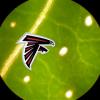Hi Estrellita3,
Late reply, i think I just figured how to use this forum LOL! I am working in dietary supplements, and trying to get the company certified with nsf, We do have alot of work to do though. Anyway, if you have not found anything documented, here is FDAa description of WHAT IS a dietary supplement. If you dont meet this, then you are not a supplement, and likely wont need NSF. Direct link here da.gov/food/information-consumers-using-dietary-supplements/questions-and-answers-dietary-supplements#:~:text=A%20dietary%20supplement%20is%20a,intended%20to%20supplement%20the%20diet.
What is a dietary supplement?
Congress defined the term "dietary supplement" in the Dietary Supplement Health and Education Act (DSHEA) of 1994. A dietary supplement is a product intended for ingestion that, among other requirements, contains a "dietary ingredient" intended to supplement the diet. The term "dietary ingredient" includes vitamins and minerals; herbs and other botanicals; amino acids; "dietary substances" that are part of the food supply, such as enzymes and live microbials (commonly referred to as "probiotics"); and concentrates, metabolites, constituents, extracts, or combinations of any dietary ingredient from the preceding categories. Dietary supplements may be found in many forms, such as pills, tablets, capsules, gummies, softgels, liquids, and powders. They can also be in the same form as a conventional food category, such as teas or bars, but only if the product is not represented as a conventional food or as a "sole item of a meal or the diet." To be a dietary supplement, a product must also be labeled as a dietary supplement; that is, the product label must include the term "dietary supplement" or equivalent (e.g., "iron supplement" or "herbal supplement"). DSHEA places dietary supplements in a special category under the general umbrella of "foods," unless the product meets the definition of a drug (e.g., because it is labeled to treat or mitigate a disease).















